Results
-
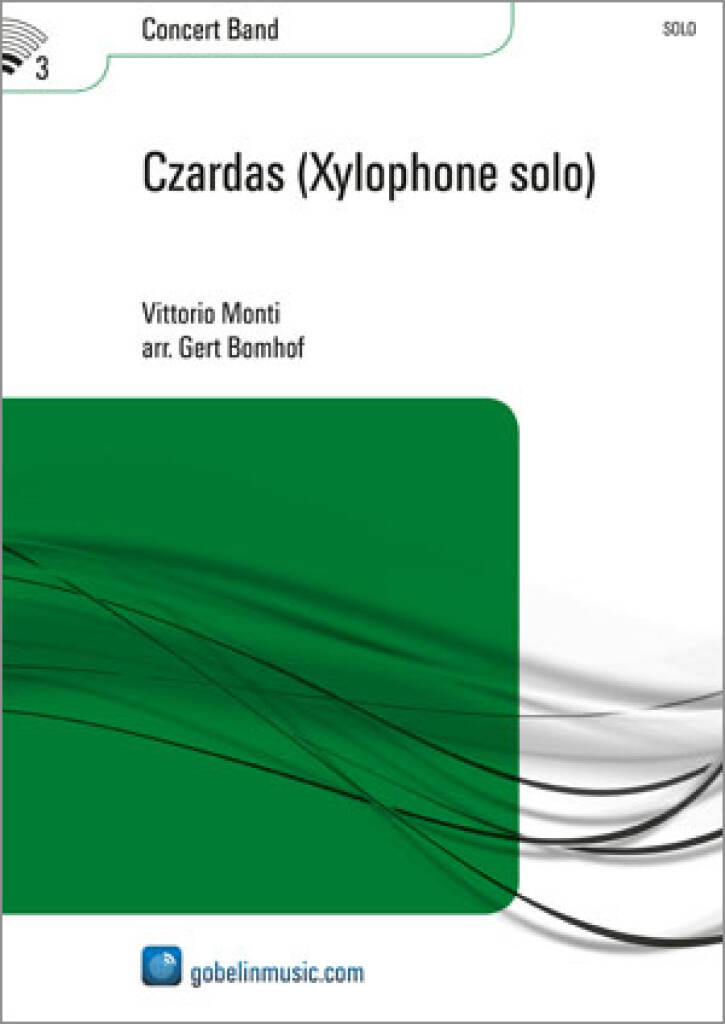 £94.99
£94.99Czardas (Xylophone solo) - Monti
Vittorio Monti was born on January 6, 1868 in Naples (Italy). His musical education (violin and composition), he enjoyed at the conservatory there. Around his 30's Monti went to Paris. He earned a living as a conductor and wrote several ballets and operettas. In his last years, Monti died in 1922, he devoted himself to teaching and composing. His famous "Czardas" has made his name known even today. Initially the czardas was a Hungarian folk dance , but after the mid-nineteenth century it was even a dance for the upper-class. Czardas begins with a slow introduction, the Lassan (slow and sad), and then the fast part, Friska, follows. Czardas is not, as somany people think typical gypsy music.
Estimated dispatch 7-14 working days
-
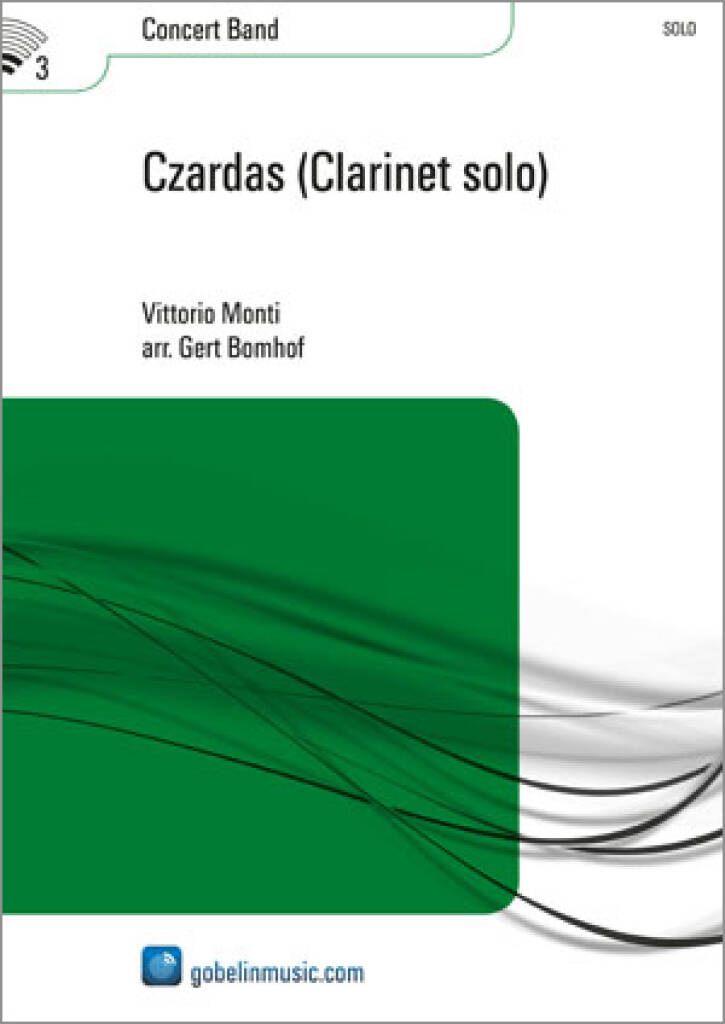 £94.99
£94.99Czardas (Clarinet solo) - Monti
Vittorio Monti was born on January 6, 1868 in Naples (Italy). His musical education (violin and composition), he enjoyed at the conservatory there. Around his 30's Monti went to Paris. He earned a living as a conductor and wrote several ballets and operettas. In his last years, Monti died in 1922, he devoted himself to teaching and composing. His famous "Czardas" has made his name known even today. Initially the czardas was a Hungarian folk dance , but after the mid-nineteenth century it was even a dance for the upper-class. Czardas begins with a slow introduction, the Lassan (slow and sad), and then the fast part, Friska, follows. Czardas is not, as somany people think typical gypsy music.
Estimated dispatch 7-14 working days
-
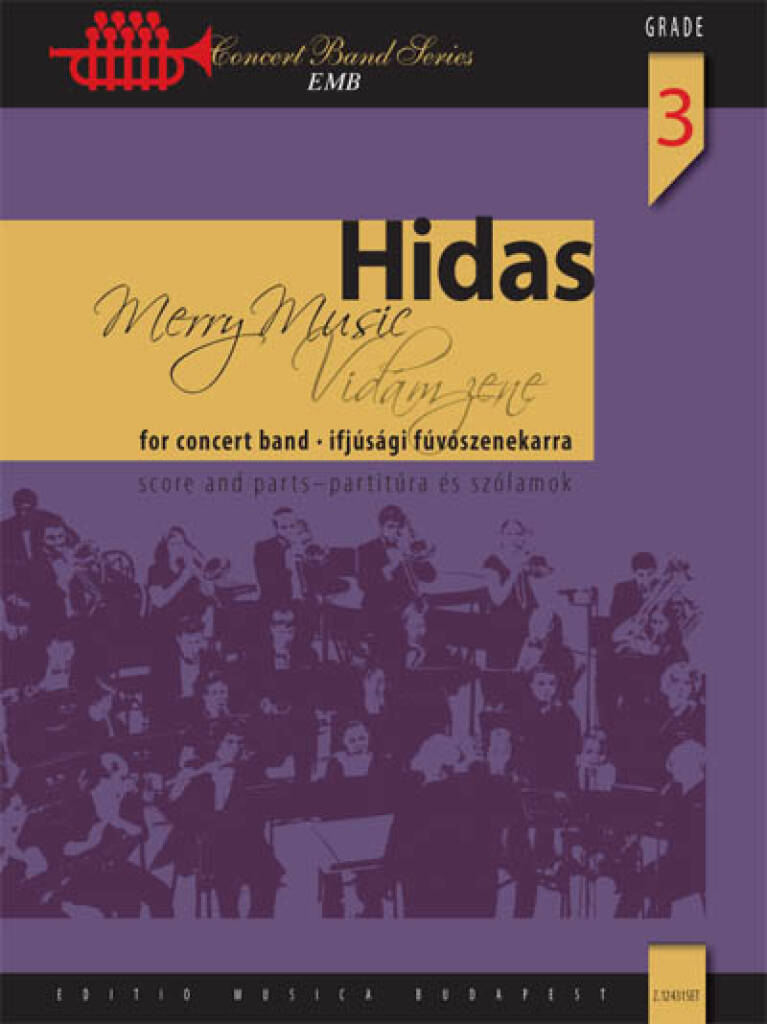 £53.50
£53.50Merry Music - Frigyes Hidas
Although Frigyes Hidas (1928-2007) composed in every genre, he gained international fame and recognition principally with his chamber music for brass instruments and his works written for wind ensembles and wind orchestras. In 1995 he was invited to WASBE, the international organization of wind ensembles, and in the final decades of his life, which were rich in commissions, he travelled the world as a competition jury member, guest of honour at festivals and visiting university professor. Full of humour and extremely effective, Merry Music is one of his best-known and most popular works.
Estimated dispatch 7-14 working days
-
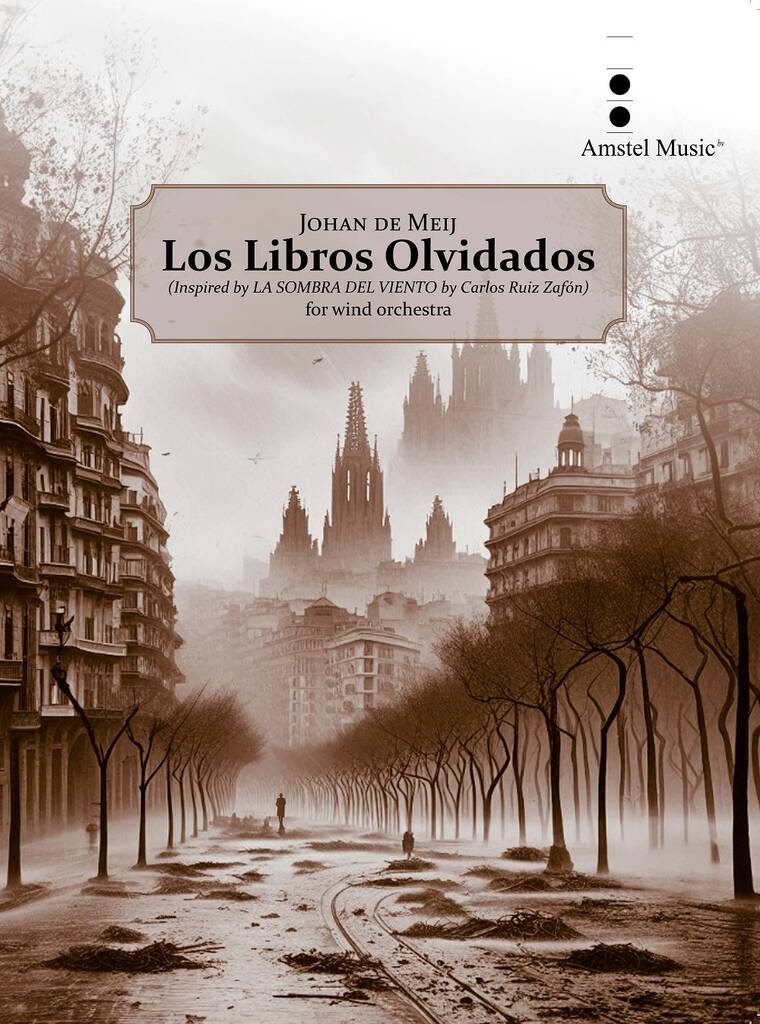 £225.99
£225.99Los Libros Olvidados - Johan de Meij
1. Barcelona 19452. Los Libros Olvidados - El Cementerio3. Las Ramblas - Els Quatre Gats4. Coubert - El Hombre sin Rostro5. Bea (Beatriz)6. El Inspector Fumero7. La Ciudad de las SombrasThis is a story wrapped within a story that unfolds in Barcelona 1945, following World War II. The protagonist, Daniel Sempere, is the teenage son of an antiquarian book dealer, who one day takes him to the Cemetery of Forgotten Books, a mysterious place with labyrinthine corridors where rare and banned books are stacked in massive dusty piles. His father tells Daniel to select a book, but it will be his responsibility to protect it. Daniel picks La Sombra del Viento (The Shadow of the Wind), a novel by a forgotten author Julin Carax. Daniel immediately starts reading the book, and the story unwinds itself into a compelling and complicated plot. As he reads, Daniel finds himself and his own life merging into the story's plot. It transpires that there is a mysterious man named Lan Coubert ('the man without a face') who is determined to destroy all copies of Carax's books. Daniel is threatened by Coubert and is determined to find out what happened to Carax, who fled to Paris and subsequently disappeared. Daniel finds that his own life has much in common with the author's. The book mixes magic realism, page-turning mystery, and Daniel's own real life. Daniel's once ordinary teenage existence is now filled with larger-than-life colorful and at times, terrifying characters. Among them are Fermn Romero de Torres, a beggar who Daniel and his father befriend and employ in the family bookstore; the evil police inspector Javier Fumero, who could be compared to Scarpia in Puccini's opera Tosca or Javert in Les Misrables. The corrupt Fumero uses the war as an excuse to practice his sadism and is widely feared in Barcelona. He is represented in the music by a fascist military march. The city of Barcelona becomes a character in the book and in the music. The Ramblas, the boulevard running through Barcelona's Gothic Quarter and the famous caf Els Quatre Gats (the four cats) come alive in the score through a Cobla, the traditional wind ensemble playing a sardana, typical Catalan folk music. Two parallel love stories turn up the heat: Julin Carax's passionate, forbidden love for Penlope, and Daniel's equally passionate and forbidden love for Beatriz (Bea). Bea's sultry love theme is based on the first three letters of her name, with the ascending intervals B-E-A. Johan de Meij New York, October 17th, 2023
Estimated dispatch 7-14 working days
-
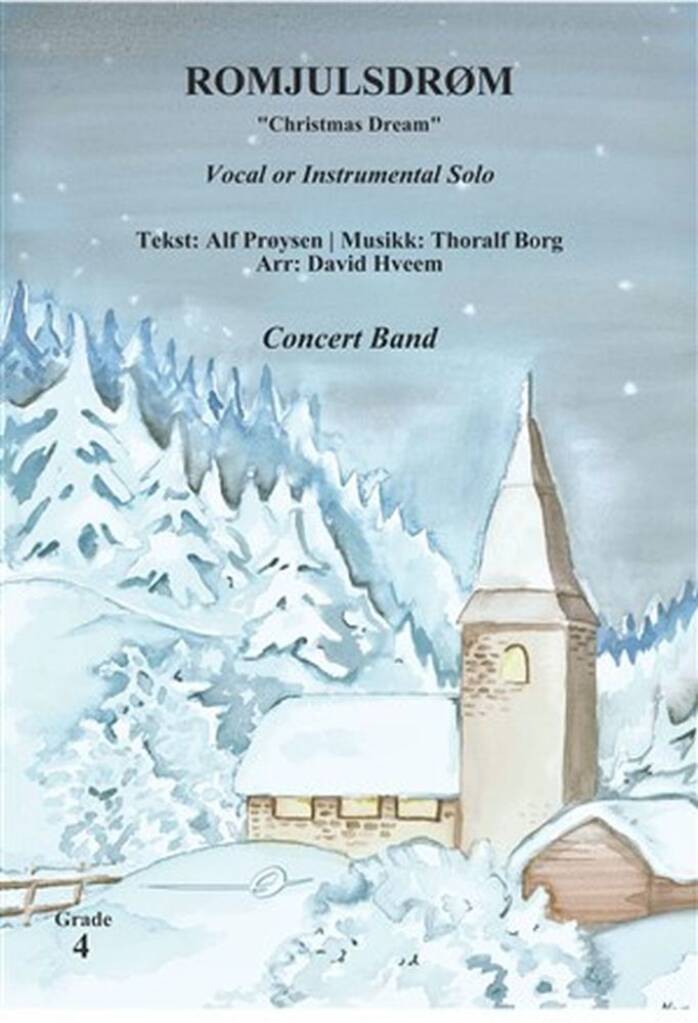 £115.60
£115.60Romjulsdrm - Thoralf Borg
The poem Romjulsdrm ("Christmas Dream") was first published in Arbeiderbladet on January 3rd 1959, and became known when Thoralf Borg set a melody to it in 1968. Up until this, Alf Prysen had used a melody quite similar to the song Lijan uti dalen, when he sang the song in the TV program Ei vise vil jeg synge in 1964. At the same time that Borg's melody was written, the last four lines of text were also added to the poem, and the song took on the form we know today.The form and structure of this arrangement originates from a version for big band and vocals commissioned by stre Toten Storband, written in 2018 for one of their traditional midnight concerts on the day before Christmas. In an attempt to give the arrangement a nice calm and the text a lot of room, as is often the case in songs like this, it ended up in a relatively narrative style where the variation in tempo and the shifts between swing and straight eighth notes are particularly central.The song is about family, friendship and the quiet days of the Christmas holidays, which hopefully is something most people can recognise. The arrangement for the aforementioned midnight concert was ordered because my sister was to be the soloist for the concert, and since my father also played lead trombone - as he has done in this big band for as long as I can remember - it was natural to add a small trombone solo as well. It's always special to write and arrange music for people I know and appreciate, but it's extra special when it's also for two of my great role models.- David Stre Hveem -
Estimated dispatch 7-14 working days
-
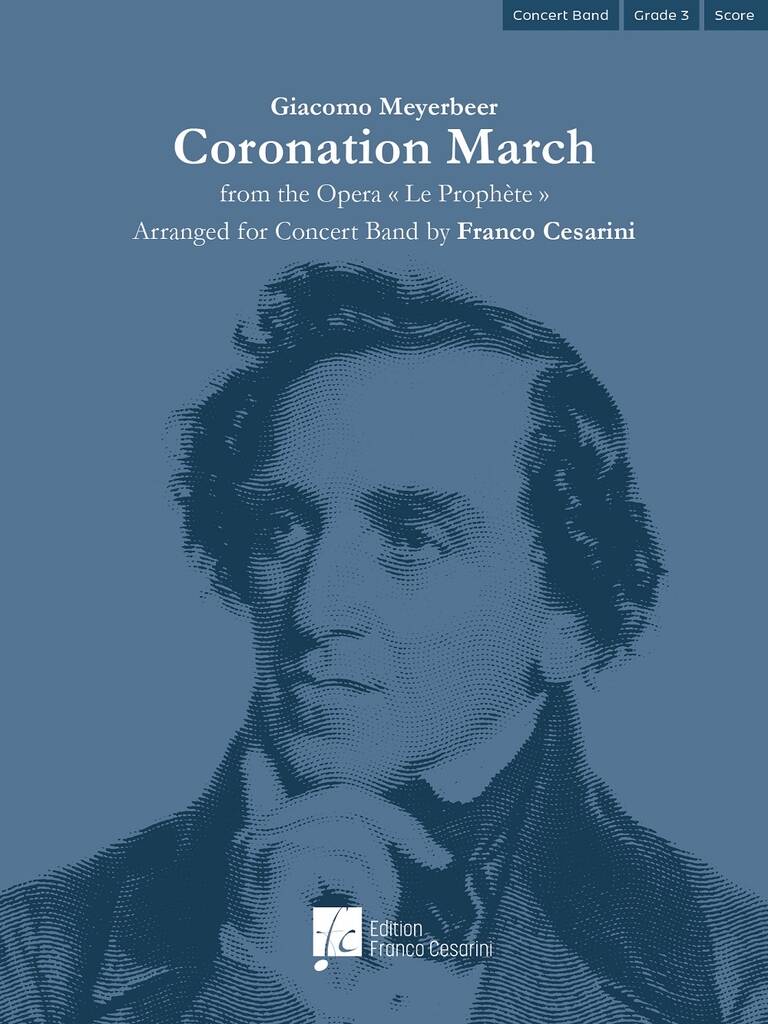 £78.00
£78.00Coronation March - Giacomo Meyerbeer
Giacomo Meyerbeer (1791-1864) was a German opera composer of Jewish origins, who has been described as perhaps the most successful stage composer of the nineteenth century. From 1831 until his death, he remained a dominating figure in the world of opera. His contemporary Hector Berlioz summed up his public career claiming that he 'has not only the luck of being talented, but the talent to be lucky'. His works made him the most frequently performed composer at the world's leading opera houses in the nineteenth century. Giacomo Meyerbeer composed his opera Le Prophte in 1849. In this opera a coronation is preceded by a splendid march. Although the opera itself is rarely performed, the Coronation March has gained a place in the concert repertoire.Franco Cesarini's arrangement for concert band of the Coronation March stands out for its skillful instrumentation which underlines the powerful sounds of this classic concert march.
Estimated dispatch 7-14 working days
-
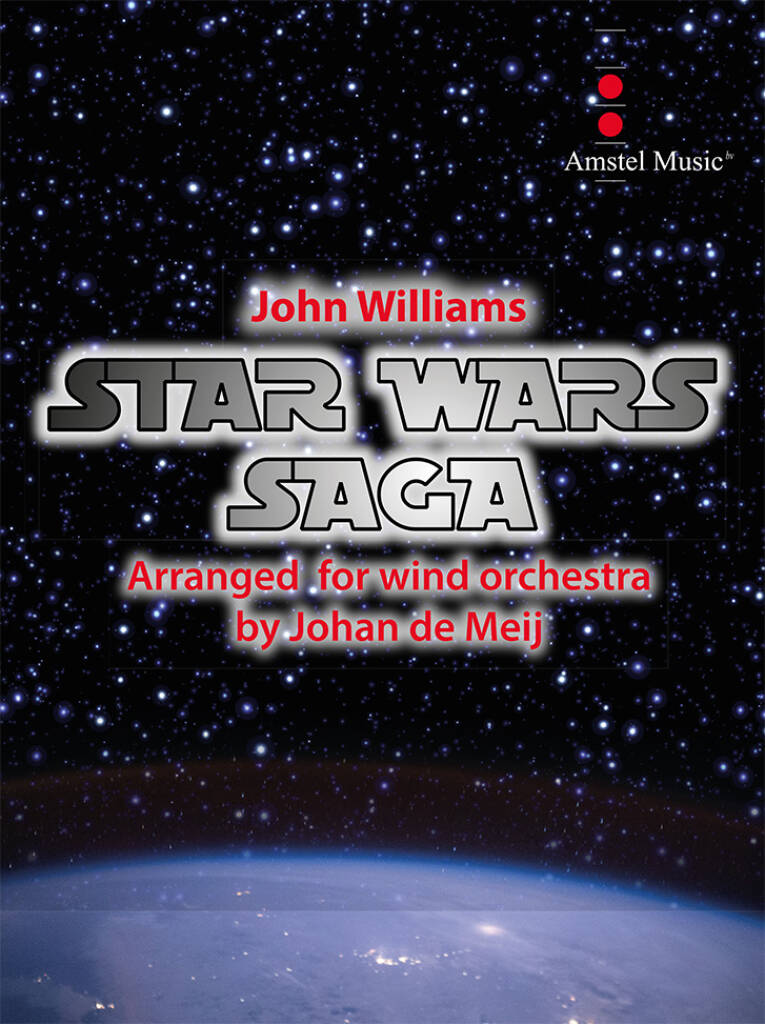 £129.99
£129.99Star Wars Saga - John Williams
John Williams (February 8, 1932) has composed some of the most popular, recognizable and critically acclaimed film scores in cinema history. Williams has won 25 Grammy Awards, five Academy Awards, seven British Academy Film Awards, and four Golden Globe Awards. With 53 Academy Award nominations, he is the second most-nominated individual, after Walt Disney. His compositions are considered the epitome of film music, and he is considered among the greatest composers in the history of cinema. His work has influenced many other composers of film, popular, and contemporary classical music. In 2005, the American Film Institute selected Williams's score to 1977's Star Wars as the greatest film score of all time. In this newly revised arrangement from 1986, arranger Johan de Meij has used themes from Star Wars - A New Hope en The Empire Strikes Back.
Estimated dispatch 7-14 working days
-
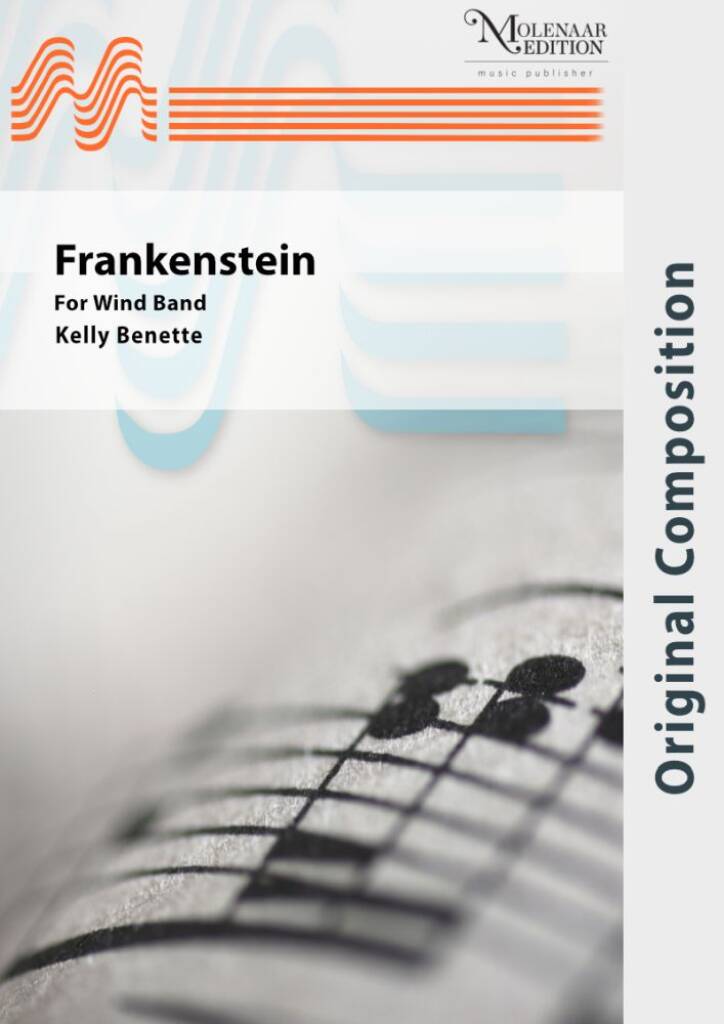 £119.60
£119.60Frankenstein - Kelly Bennette
This tone poem entitled Frankenstein is based on the original novel by Mary Shelley (1797-1851). Victor Frankenstein creates life from pieces of many dead bodies. Soon, his monster comes to life. Though very intelligent, the monster has the maturity of a child. In a fit of rage, the monster kills William, Victor's younger brother. The monster finds Victor in The Alps and asks him to make him a mate. Victor makes him a mate, but kills her. The enraged monster tells Victor, "I will be with you on your wedding night." The monster forces his way into the wedding and kills Victor's fiance, Elizabeth. Victor chases the monster all the way to the Arctis where he dies of exhaustion. The monster finds Victor's body and realizes he has nothing to live for and goes away to die.
Estimated dispatch 7-14 working days
-
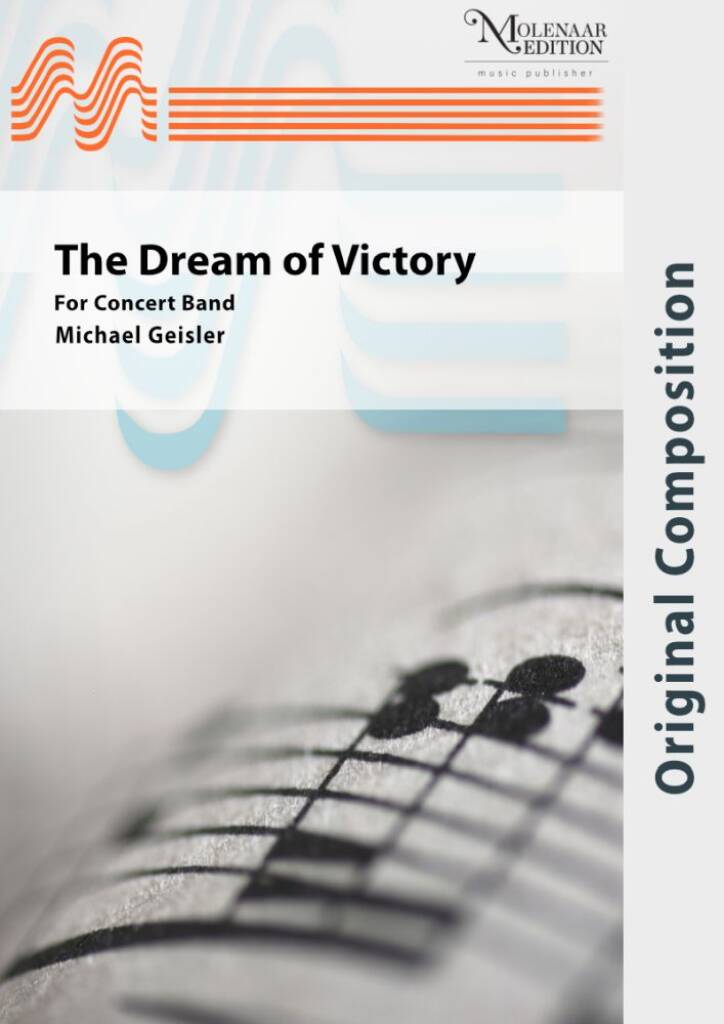 £101.20
£101.20The Dream of Victory - Michael Geisler
The Norwegian Roald Amundsen had actually been planning an expedition to the Arctic for a long time. But at the beginning of September 1909, two other adventurers announced that they had already reached the Pole: Frederick Cook and Robert Edwin Peary. Amundsen changed his mind - if he could no longer be the first man at the North Pole, he at least wanted to be the first to set foot on the South Pole. On 7 June 1910, Amundsen set off on an Antarctic expedition that went down in the annals of history.
Estimated dispatch 7-14 working days
-
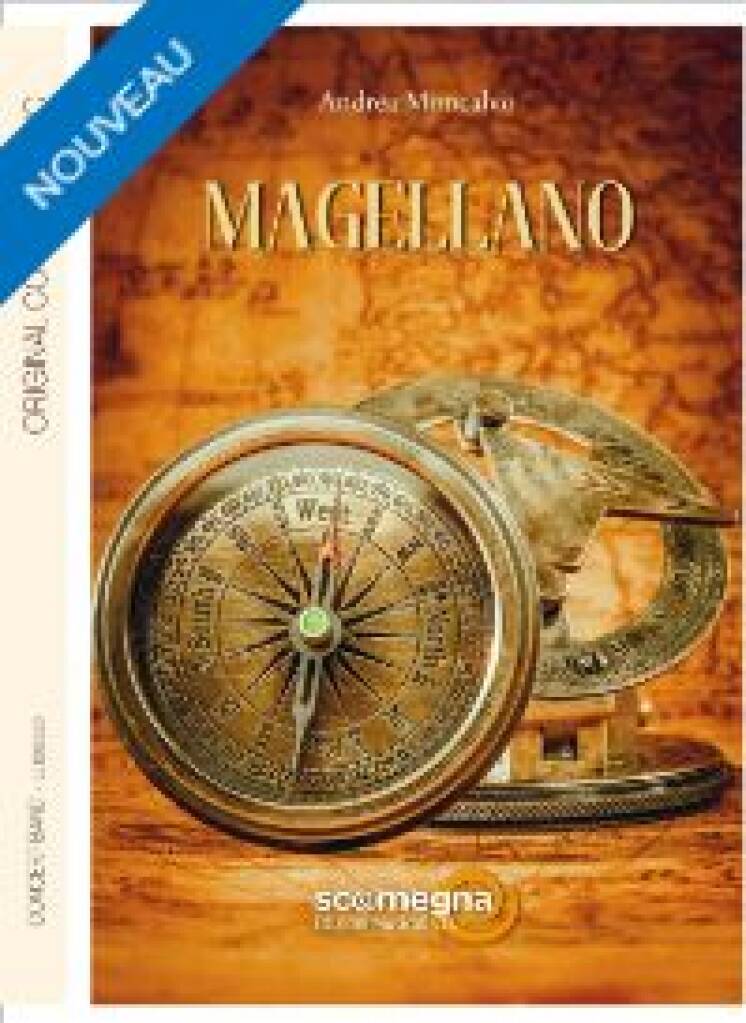 £105.80
£105.80Magellano - Andrea Moncalvo
This composition was written on the occasion of the 500th anniversary of the death of Ferdinand Magellan, a Portuguese explorer (1480 - 1521), who embarked on what would have become the first circumnavigation of the globe. Unfortunately, he did not complete it because, in 1521, he was killed in the region that is today the Philippines. This adventure triggered various images in the author's mind; evocations that the composer elaborated in this piece, which is in a tripartite form (A B A) and is introduced and concluded by a solemn fanfare evoking the departure of the expedition, consisting of 5 ships with a total of 234 crewmen. The first part (Allegro) presents a main theme with a cantabile character that describes the fleet that, intrepid, plows the ocean. This initial melody is then contrasted by a more rhythmic and syncopated theme in a minor key, which instead refers to the indigenous peoples they have encountered during the journey. The central section (Adagio) is an oasis of reflection because, as in other great adventures, this too has tragic aspects: mutinies, shipwrecks, clashes with indigenous peoples, up to the disappearance of those who had desired and planned this enterprise. The last part proposes the themes of the first section but in reverse order, to describe the return to the homeland. The solemn fanfare welcomes the arrival of the Victoria, the only surviving ship with only 18 men on board, which returns to the port of departure after completing the circumnavigation of the earth in 2 years, 11 months, and 17 days.
Estimated dispatch 7-14 working days
